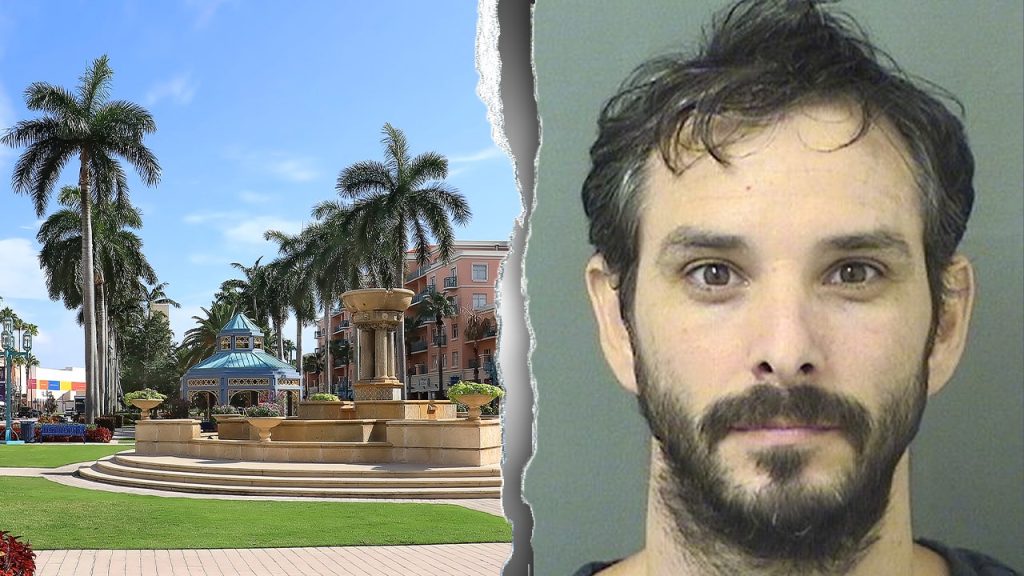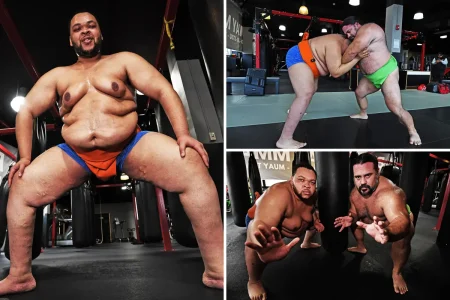When Home Security Meets Teenage Prank: The Troubling Case of a Florida Homeowner
In the quiet suburbs of Boca Raton, Florida, what started as a teenage prank quickly escalated into a frightening confrontation that landed 40-year-old Santiago Cairo behind bars. On the evening of October 16th, around 8 p.m., Cairo noticed unfamiliar figures at his front door and immediately feared a home invasion. Acting on instinct, he called 911 and armed himself with a gun before confronting a 14-year-old boy outside his residence. This split-second decision would lead to serious legal consequences for the homeowner, highlighting the fine line between self-protection and excessive force in an era of heightened security concerns and neighborhood mischief.
According to police reports, Cairo’s account and the teenager’s story diverge significantly on what happened next. Cairo maintained to authorities that he never aimed his weapon at the young teen, claiming he kept his gun in a “low ready position” while waiting for police to arrive. The homeowner appeared to believe he was dealing with potential burglars, a fear possibly influenced by what neighbors described as an increase in car break-ins throughout their South Florida community. This context matters when considering Cairo’s state of mind, though it doesn’t necessarily justify what followed, according to law enforcement’s assessment of the situation.
The 14-year-old prankster tells a more alarming version of events. While admitting to the childish game of “ding-dong ditch” – ringing doorbells and running away – the teenager claims Cairo approached him aggressively, wielding both a flashlight and a gun while shouting, “You messed with the wrong guy.” According to the teen’s testimony to investigators, Cairo ordered him onto his knees and even grabbed his shoulder in an attempt to force him down, leaving the young boy feeling genuinely threatened. The stark contrast between these accounts created a challenging situation for responding officers, who ultimately had to determine whether Cairo’s response was proportional to the perceived threat.
Police investigation revealed that at no point had the teenager actually attempted to break into Cairo’s home – this was simply a neighborhood prank gone terribly wrong. Cairo reportedly admitted to authorities that he “went too far” in his response, a crucial acknowledgment that likely influenced the subsequent charges. Despite his attorney’s insistence that “Mr. Cairo never in fact pointed his firearm at anyone or put his hands on anyone,” investigators found sufficient evidence to arrest him on charges of aggravated assault with a firearm. Though Cairo was released on a $10,000 bond, the incident has sparked intense debate throughout the community about appropriate responses to perceived threats and the potential consequences of misreading a situation.
Not everyone in the neighborhood believes Cairo deserves punishment. His neighbor, Mary Elizabeth Hall, expressed disappointment with how events unfolded, describing the emotional scene: “I witnessed the mother drive away with her children in the back, while my neighbor, Santiago, was sitting handcuffed in the back of the car.” Hall defended Cairo’s actions by pointing to the neighborhood’s recent security concerns and questioning the teenagers’ true intentions. “I question if it was a prank, or if they were trying to steal something,” she told local media. “My neighbor did the right thing, and the outcome was not the right thing.” This perspective underscores the complex interplay between community safety fears and the potential for misunderstanding innocent, if mischievous, teenage behavior.
As Cairo prepares to appear before a judge next month, both sides of this troubling incident reflect broader societal tensions around safety, responsibility, and appropriate responses to perceived threats. Hall hopes for dual outcomes: that “the young man learns a very serious lesson” while her neighbor’s “name is cleared.” This case serves as a sobering reminder of how quickly situations can escalate when fear meets misunderstanding – a homeowner now faces serious legal consequences while a teenage prank resulted in trauma neither party likely anticipated. As communities nationwide grapple with security concerns, this Boca Raton confrontation highlights the critical importance of measured responses, clear communication, and the sometimes blurry line between protection and overreaction in our neighborhoods.









